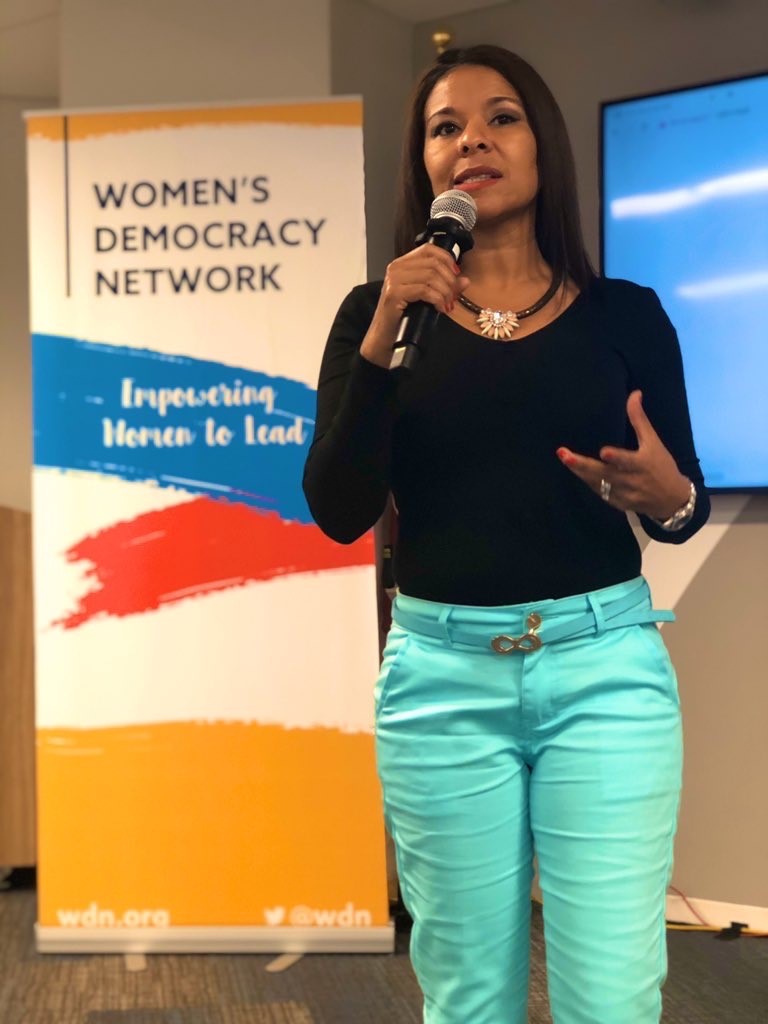
Despite making up more than half of the world’s population, women remain woefully underrepresented in politics worldwide as a result of systemic legal and cultural inequalities. How can governments and civil society empower women to participate in policymaking?
The International Republican Institute’s (IRI) Women’s Democracy Network (WDN) has published a gender-responsive policymaking handbook to help elected officials and civil society leaders integrate gender into each phase of the policymaking process. With this resource, WDN is empowering our members to find policy solutions that address the barriers preventing them from entering politics, such as gender-based violence and economic disempowerment.
When women have a seat at the public policy table, societies are more inclusive, egalitarian and democratic. In fact, studies show that women’s participation in political decision-making is invaluable to the implementation of better resourced and more efficient policy that reflects the needs and priorities of all citizens. According to the Organization for Economic Cooperation and Development (OECD), “An increase of women in public life results in lower levels of inequality and increased confidence in national governments.”
The challenges women face when engaging in the public sphere are numerous, and include systemic gender-based violence and economic disempowerment. More than a third of women across the globe have experienced physical or sexual violence, which stymies women’s civic and economic participation in their communities. Likewise, women’s economic marginalization can trap women in dire situations in which they are economically dependent on and unable to leave their abusers, thus continuing the cycle of disempowerment.
Violence against women bears enormous economic costs and ultimately undermines societal development. More broadly, it has been estimated that reaching gender parity in the workforce alone would add $28 trillion to global gross domestic product (GDP). It is entrenched barriers such as these that prevent women from engaging in public life, effectively silencing them and making governments less representative.
To overcome these obstacles, WDN builds women’s capacity to advocate for marginalized groups, who can then influence elected officials and ultimately create more inclusive communities. As part of these efforts, WDN has developed a gender-responsive policymaking toolkit and handbook to support elected officials and civil society leaders to integrate gender into each phase of the policymaking process.
The interactive training features modules that go step-by-step through the policy process—from problem identification to policy implementation and oversight. Beneficiaries learn how to conduct a gender analysis of existing legislation, design a policy response and strategize tactics to mobilize allies around the policy intervention.
WDN will be piloting the toolkit in 11 countries through subgrants to its Country Chapters and local partner organizations. Each project engages either government officials or members of civil society to address gender-based violence or economic empowerment issues in their community by promoting new policies or amendments to existing policies. WDN will collect best practices from its partners who are piloting the toolkit and will promote cross-border exchanges to share experience.
By building women’s skills as leaders and decision-makers, women will be better able to engage in political decision-making and drive positive change in their communities and countries. In so doing, we hope to help women overcome the barriers preventing them from engaging fully in building more inclusive democratic societies.
Top